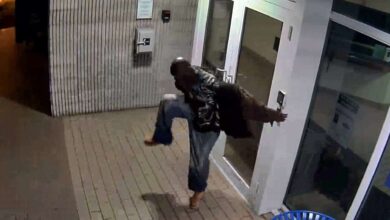Is Vicodin Addictive?

What is Vicodin?
Vicodin is a combination of acetaminophen and hydrocodone. Hydrocodone is an opioid pain medication. An opioid is sometimes called a narcotic. Acetaminophen is a less potent pain reliever that increases the effects of hydrocodone. Vicodin tablets are used for the relief of moderate to moderately severe pain.
The dosage is based on your medical condition and response to treatment. In children, the dosage is also based on weight. Do not increase your dose, take the medication more frequently, or take it for a longer time than prescribed. Properly stop the medication when so directed.
Pain medications work best if they are used as the first signs of pain occur. If you wait until the pain has worsened, the medication may not work as well. If you have ongoing pain (such as due to cancer), your doctor may direct you to also take long-acting opioid medications. In that case, this medication might be used for sudden (breakthrough) pain only as needed. Other pain relievers (such as ibuprofen, naproxen) may also be prescribed. Ask your doctor or pharmacist about using this product safely with other drugs.
Suddenly stopping this medication may cause withdrawal, especially if you have used it for a long time or in high doses. To prevent withdrawal, your doctor may lower your dose slowly. Tell your doctor or pharmacist right away if you have any withdrawal symptoms such as restlessness, mental/mood changes (including anxiety, trouble sleeping, thoughts of suicide), watering eyes, runny nose, nausea, diarrhea, sweating, muscle aches, or sudden changes in behavior.
When this medication is used for a long time, it may not work as well. Talk with your doctor if this medication stops working well.
Is Vicodin Addictive?
Yes, Vicodin is addictive. This is because it contains hydrocodone. Opiod containing medication , works by binding to pain receptors (known specifically as mu opioid receptors) in the brain. Once hydrocodone binds to these receptors, pain signals are weakened or blocked entirely. Mu opioid receptors are also responsible for the positive reinforcement aspect of drug-taking. Feel-good sensations of euphoria produced by opioids are likewise introduced here and encourage people to take the drug again. Often, when people try to quit or reduce the amount of hydrocodone they’re taking, they discover how dependent their bodies have become on the painkiller. After repeated use, opioids’ action in the frontal cortex weaken the individual’s ability to control decision-making and regulate mood. Once a physical dependence on Vicodin develops, addiction becomes more likely. Vicodin withdrawals can be intense and painful, and many people will continue using Vicodin just to avoid them.
Vicodin Safety Information
Hydrocodone can slow or stop your breathing. Never use this medicine in larger amounts, or for longer than prescribed. Narcotic pain medicine may be habit-forming, even at regular doses. Never share Vicodin with another person, especially someone with a history of drug abuse or addiction. Keep the medication in a place where others cannot get to it.
MISUSE OF NARCOTIC MEDICINE CAN CAUSE ADDICTION, OVERDOSE, OR DEATH, especially in a child or other person using the medicine without a prescription.
Do not use Vicodin if you have used a MAO inhibitor in the past 14 days, such as isocarboxazid, linezolid, methylene blue injection, phenelzine, rasagiline, selegiline, or tranylcypromine.
Do not take more of Vicodin than is recommended. An overdose of acetaminophen can damage your liver or cause death. Call your doctor at once if you have nausea, pain in your upper stomach, itching, loss of appetite, dark urine, clay-colored stools, or jaundice (yellowing of your skin or eyes).
Stop taking Vicodin and call your doctor right away if you have skin redness or a rash that spreads and causes blistering and peeling.


